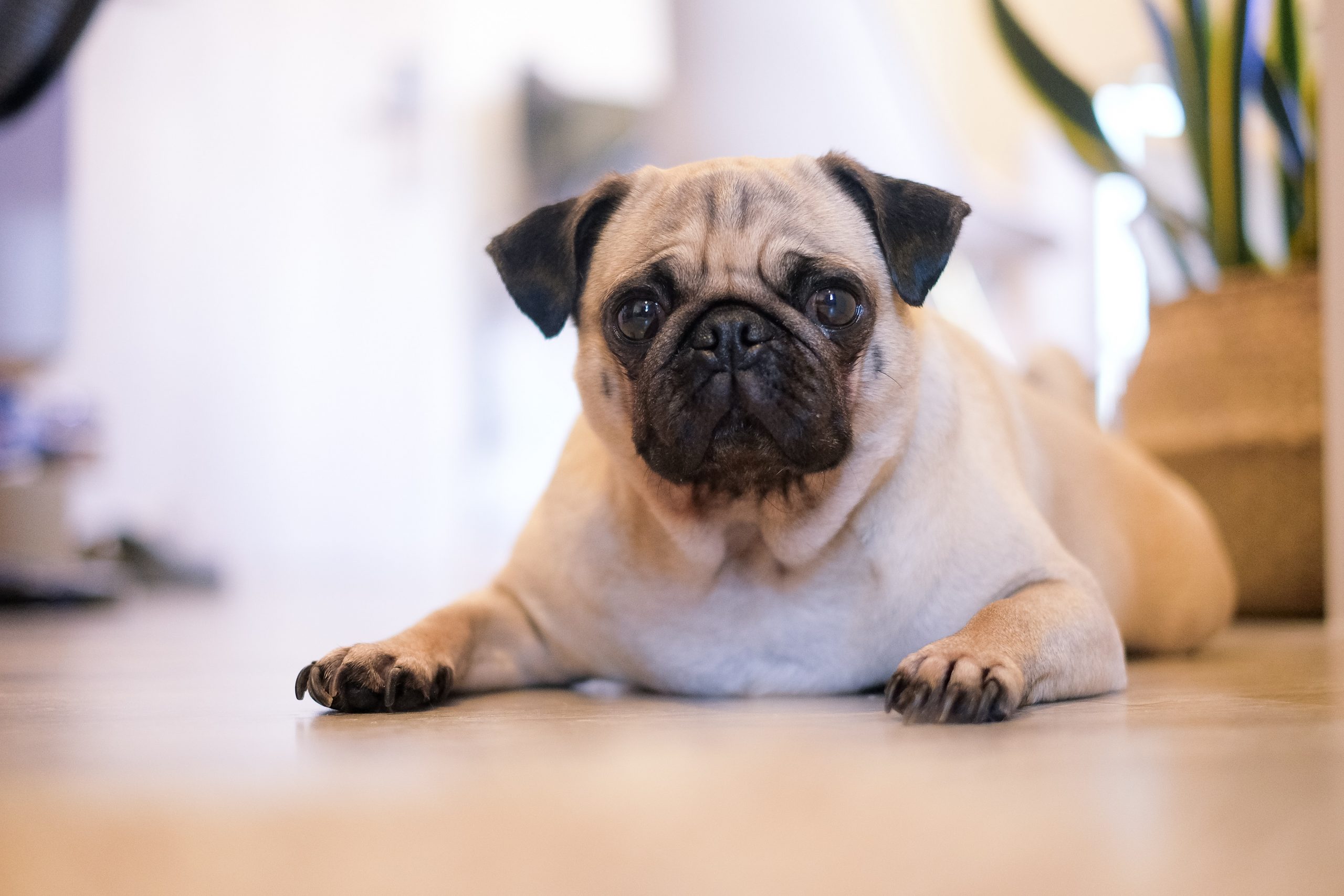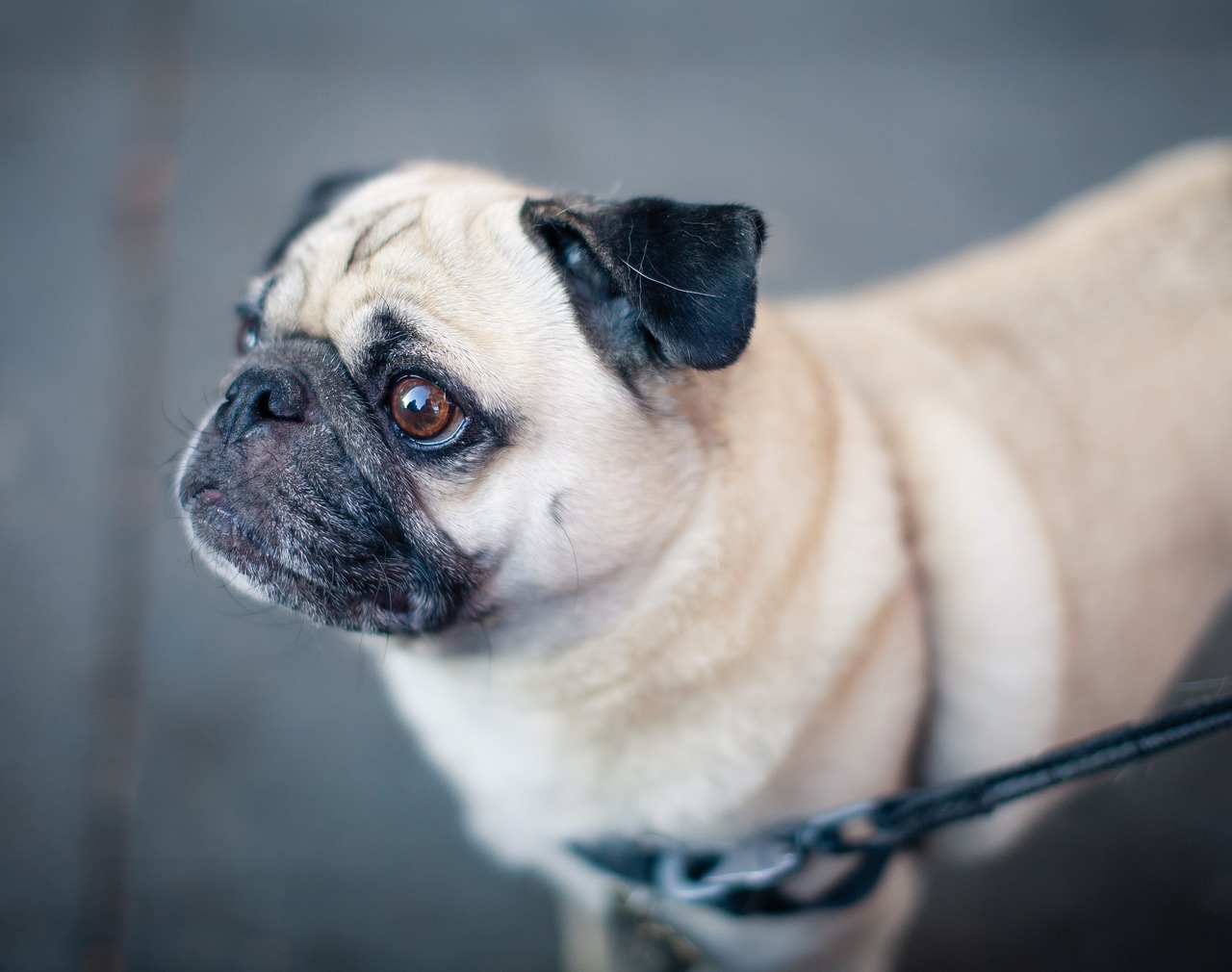Pugs are well-loved for their wrinkled faces and affectionate temperament. This small breed, known for its friendly and sociable demeanor, makes for an excellent companion. Below, we delve into eight key temperament traits of the beloved Pug.
1. Affectionate and Loving
Pugs are renowned for their affectionate nature. They form strong attachments to their owners and are excellent companions. Their love isn’t reserved for their human family alone; Pugs are also known to get along well with children and other pets. They thrive on attention and are happiest when they’re part of the family’s daily life.
2. Social and Playful
With an outgoing and playful disposition, Pugs love meeting new people and engaging in playful activities. They enjoy being the center of attention and are sure to bring liveliness and joy to any gathering. Their playful and sociable traits make them great companions for families.
3. Clever but Stubborn
While Pugs are intelligent and relatively quick learners, they have a stubborn streak. Training requires patience and consistency. Positive reinforcement techniques, like treats and praises, work best with Pugs. Early socialization and puppy training classes are recommended to mold their temperament positively.
4. Low Energy
Pugs aren’t particularly active dogs. They enjoy short walks and play sessions but also love their nap times. This low-energy demeanor makes them suitable for both house and apartment living. However, owners should monitor their weight closely, as they are prone to obesity.
5. Adaptable
One of the Pug’s standout traits is adaptability. They can thrive in various environments, from an apartment in a bustling city to a house in the quiet countryside. Whether living with a single owner or a large family, a Pug can adapt and fit into various lifestyles and living arrangements.
6. Sensitivity
Pugs are sensitive to their owner’s feelings and emotions. They provide companionship and comfort, making them excellent emotional support animals. However, their sensitivity also means they don’t respond well to harsh tones or treatment; gentle handling and training are crucial.
7. Charming and Mischievous
Their charming personality and sense of humor endear Pugs to their owners. They often display a mischievous side, which, coupled with their expressive faces, can be entertaining. Their amusing antics and tendency to make their owners laugh contribute significantly to their popularity as a breed.
8. Not Natural Guards
Though they are loyal to their families, Pugs aren’t known to be excellent guard dogs. They may bark at unfamiliar sounds or strangers but are more likely to welcome guests with wagging tails rather than act aggressively.
Pugs are delightful companions suited for various owners due to their affectionate and adaptable nature. Their charming temperament, combined with their distinctive appearance, makes them a favorite among dog enthusiasts. With proper care, attention, and lots of love, a Pug will be a devoted and amusing companion for many years.
How Does a Male Pug Temperament Compare to a Female Pug?
Male Pug Temperament:
1. More Playful
Males typically exhibit a more playful and outgoing demeanor. They’re often described as “clownish,” engaging in behaviors that make their owners laugh. If you’re seeking an endlessly entertaining pet, a male Pug might be the ideal choice.
2. Affectionate
Male Pugs tend to be more affectionate and attention-seeking. They often crave their owner’s love and are more likely to engage in cuddling sessions. For families or individuals seeking a lovable lap dog, males often fit this role perfectly.
3. Territorial Instincts
Though not aggressive, male Pugs can be more territorial. They might mark areas around the house, a behavior that can be mitigated through early neutering and proper training.
4. Consistent Temperament
Owners often find male Pugs to have a more stable and consistent temperament. Their mood and behavior are predictable, making them easier to manage, especially for first-time owners.
Female Pug Temperament:
1. Independent
Females are often more independent than males. They are content being alone for longer periods, making them suitable for owners who might not always be around.
2. Moody
Female Pugs can be somewhat moodier, especially during their heat cycles if they aren’t spayed. Their temperaments might vary from day to day, and they might seek solitude during specific periods.
3. Territorial with Family
Females tend to be more protective of their human family members. They might be wary of strangers around their loved ones, showing a more discerning attitude towards new people.
4. Maternal Instinct
With strong maternal instincts, female Pugs are nurturing. This trait makes them excellent companions for children as they’re patient and gentle with little ones.
Frequently Asked Questions about a Pug’s Temperament and Personality

- Are Pugs good with children?
- Yes, Pugs typically get along well with children. They are known for being patient and gentle, making them excellent companions for families with kids. However, it’s essential to teach children how to interact respectfully and gently with dogs.
- Do Pugs get along with other pets?
- Generally, Pugs coexist peacefully with other animals, including dogs and cats. Early socialization can help facilitate smoother interactions and foster positive relationships among pets.
- How intelligent are Pugs?
- Pugs are intelligent but can be quite stubborn. While they learn commands and tricks relatively quickly, consistent and patient training is required to manage their willful nature effectively.
- Are Pugs aggressive?
- Pugs are not known for being aggressive. They possess a friendly and loving temperament, often eager to make new friends, both human and canine.
- Can Pugs be left alone?
- While Pugs are adaptable, they thrive on human companionship and should not be left alone for extended periods. They can develop separation anxiety, which may lead to destructive behavior.
- How much do Pugs bark?
- Pugs are not excessive barkers. While they will alert owners to strangers or unusual noises, they generally have a quiet demeanor.
- Are Pugs easy to train?
- Training a Pug can be a challenge due to their stubborn streak, but with patience and consistency, they can be trained effectively. Using positive reinforcement techniques is crucial.
- Are Pugs high-energy dogs?
- Pugs have moderate energy levels. They enjoy playtime and short walks but aren’t as active as some other breeds, making them suitable for various living situations.
- Do Pugs like to cuddle?
- Yes, Pugs are known for being affectionate and enjoy cuddling with their owners. They love being close to their human companions.
- Are Pugs good apartment dogs?
- Pugs are excellent for apartment living due to their small size and moderate exercise needs. They adapt well to indoor living, provided they receive enough love and attention.
- Do Pugs shed a lot?
- Pugs do shed, so regular grooming is necessary to minimize loose hair around the home. They have a double coat that sheds year-round, with increased shedding typically in spring and fall.
- How do Pugs handle hot or cold weather?
- Due to their brachycephalic nature, Pugs can struggle in extreme temperatures. Owners should monitor them closely in hot or cold weather, ensuring they stay comfortable and safe.
- Is a Pug a good first dog?
- With their friendly and adaptable nature, Pugs can be suitable for first-time dog owners. However, potential owners should be prepared for the grooming and healthcare needs of the breed.
- Do Pugs have separation anxiety?
- Like many companion breeds, Pugs can experience separation anxiety. It’s important to gradually acclimate them to short periods alone to mitigate anxiety-related issues.
- How long do Pugs live?
- With proper care, Pugs typically have a lifespan of 12 to 15 years. Providing a healthy diet, regular exercise, and routine veterinary check-ups helps ensure a long, healthy life for your Pug.
What Kind of Person Is a Good Fit for a Pug?

Pugs, with their distinct wrinkled faces and playful demeanor, are well-suited to various types of individuals and families. Below, we explore eight types of people who typically make a great match for a Pug.
1. First-Time Dog Owners
- Pugs are adaptable and forgiving, making them a wonderful choice for first-time dog owners. Their manageable size and affable nature provide a rewarding experience for those new to the responsibilities of dog ownership.
2. Families with Children
- For families with children, Pugs are an excellent addition. They are generally patient and gentle with kids, engaging in play while being sturdy enough to handle interactions with younger family members.
3. Apartment Dwellers
- Their small size and moderate exercise needs make Pugs perfect for apartment living. As long as they receive daily walks and playtime, they thrive in smaller living spaces.
4. Seniors
- Elderly individuals often find companionship and joy in Pugs. These dogs are not overly demanding in terms of exercise, and their affectionate disposition makes them wonderful companions for seniors.
5. Individuals Working from Home
- People who work from home or spend a significant amount of time at home will find Pugs to be delightful company. Pugs love being near their owners and will happily sit by your side as you work.
6. Those with a Sense of Humor
- If you enjoy a pet with personality and a sense of humor, the Pug is for you. With their funny sounds, amusing antics, and expressive faces, they are sure to keep you smiling.
7. Active but Not Overly Sporty Individuals
- If you enjoy walks and moderate exercise but are not a marathon runner, a Pug’s energy levels will match yours. They require exercise but not as much as some high-energy breeds.
8. Committed Groomers
- Pugs shed and require regular grooming, including facial wrinkle cleaning. Individuals willing to commit to a consistent grooming routine will help keep their Pug healthy and comfortable.
Pugs are lovable, adaptable dogs suited to various lifestyles and individuals. Whether you’re a first-time owner or an experienced dog lover, living in an apartment or a house, young or old, the charming and affectionate Pug can make a wonderful addition to your life. Always consider adopting from shelters or breed-specific rescues where many Pugs are waiting for their forever homes. With proper care, attention, and love, a Pug will provide companionship, laughter, and affection for years to come.
 Toledo, United States.
Toledo, United States.